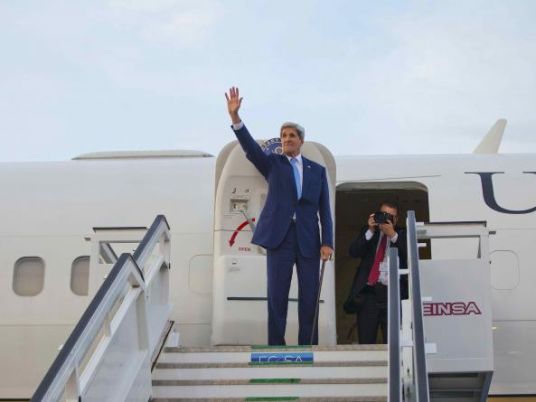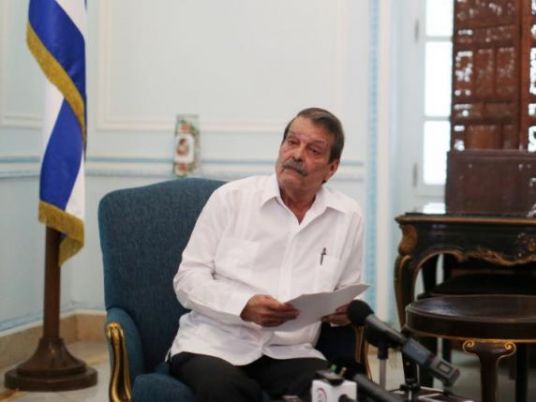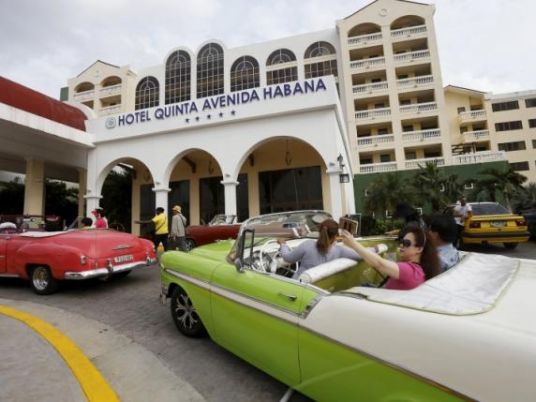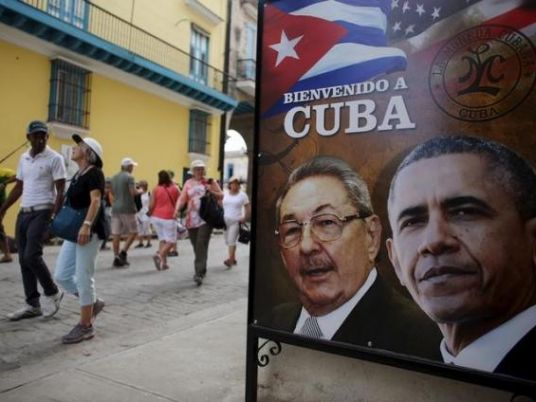
The sight was so unlikely that some Cubans could scarcely believe it: a US secretary of state lecturing their Communist government about democracy and human rights on state television.
As the US flag was raised at America's embassy in Havana for the first time in 54 years, John Kerry called for a "genuine democracy" in Cuba and his comments were broadcast across the country in full, translated accurately into Spanish so everyone could understand.
Cubans should be free to choose their own leaders, Kerry said, telling the government to respect international norms of human rights.
Cuba's government hit back by criticizing the United States' own record on rights, but it did let its people hear Kerry.
Even so, many doubt it will lead to major changes.
"It would be great if everything said were actually accomplished. We'll see if it's more than just talk," said Leyania Martinez, 44, a neighbor of the US embassy who watched the ceremony on television.
US-Cuban relations took a dramatic turn in December when Cuban President Raul Castro and US President Barack Obama announced an end to decades of hostility.
Since then, Obama has eased restrictions on travel and trade, believing engagement with Cuba will do more to encourage personal freedoms on the island than Cold War-era rhetoric and a economic embargo.
Cuban dissidents believe Obama is making a real attempt at change but that Castro will hold firm, refusing to loosen the Communist Party's hold on power.
"No, nothing is going to change because the US government shows good intentions but the Cuban regime doesn't, in fact everything to the contrary," said Jose Daniel Ferrer, leader of the largest dissident group, the Patriotic Union of Cuba.
Like other dissidents, he was not invited to the flag-raising ceremony but he did meet with Kerry at the US embassy residence.
Despite his skepticism, Ferrer was struck by the image of Kerry's message broadcast on tightly controlled Cuban television.
"Yes, that's positive for the cause," he said.
Witness to history
A few hundred Cubans and tourists braved the intense August heat and tight security around the embassy to watch the US flag go up while a US Army band played the national anthem.
Others watched it all at home or at work.
Cubans are generally pleased with the rapprochement between Havana and Washington but hold mixed opinions about the extent to which it might improve their lives.
Many hope an influx of American tourists and businesses will perk up the Cuban economy, though for now the US trade embargo of Cuban remains in place and the economy is weak.
"With a salary, I can't sustain myself. I just want to be able to earn enough money to live, not even to be rich or anything," said Isabel Valencia, 44, who has her own pastry business in Havana and has stayed in Cuba while most of her family has moved to the United States.
In the eastern city of Camaguey, Anaida Morales stumbled upon broadcasts of the fanfare, and said it was a popular topic of conversation while walking the streets.
"The Cuban government needs to act accordingly and be a little more flexible so the population can see more benefits," Morales said.
While some Cubans wondered about their own government, others doubted the United States was ready to change and said it had little credibility on human rights issues.
"The US wants to show that they practice 'real' democracy. But who has committed more atrocities in the world than the United States? Who has invaded all of the countries of Latin America, including Cuba? The United States," said Melanio Martinez, 79.
Both the US and Cuban governments say there will be many obstacles and disputes ahead. Castro, who has made modest market-style reforms since taking over from his elder brother Fidel Castro in 2008, has made clear he has no intention of allowing rapid political changes.
Felix Lopez, a locksmith from Havana, leaned on the security gate outside the embassy to get a view of the ceremony. He openly wondered how much more progress he might see.
"They say it will happen over the long term, but if the term is really long, I'm not going to see it. I'm 65 years old," Lopez said. "This is a population of seniors. Both sides need to hurry up because every day there is greater need."



